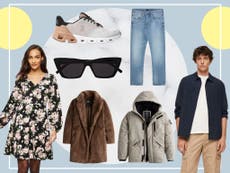The Independent's journalism is supported by our readers. When you purchase through links on our site, we may earn commission. Why trust us?
The best sustainable menswear brands to know for a more eco-friendly wardrobe
These are the labels that strive to put ethical production practices at their core
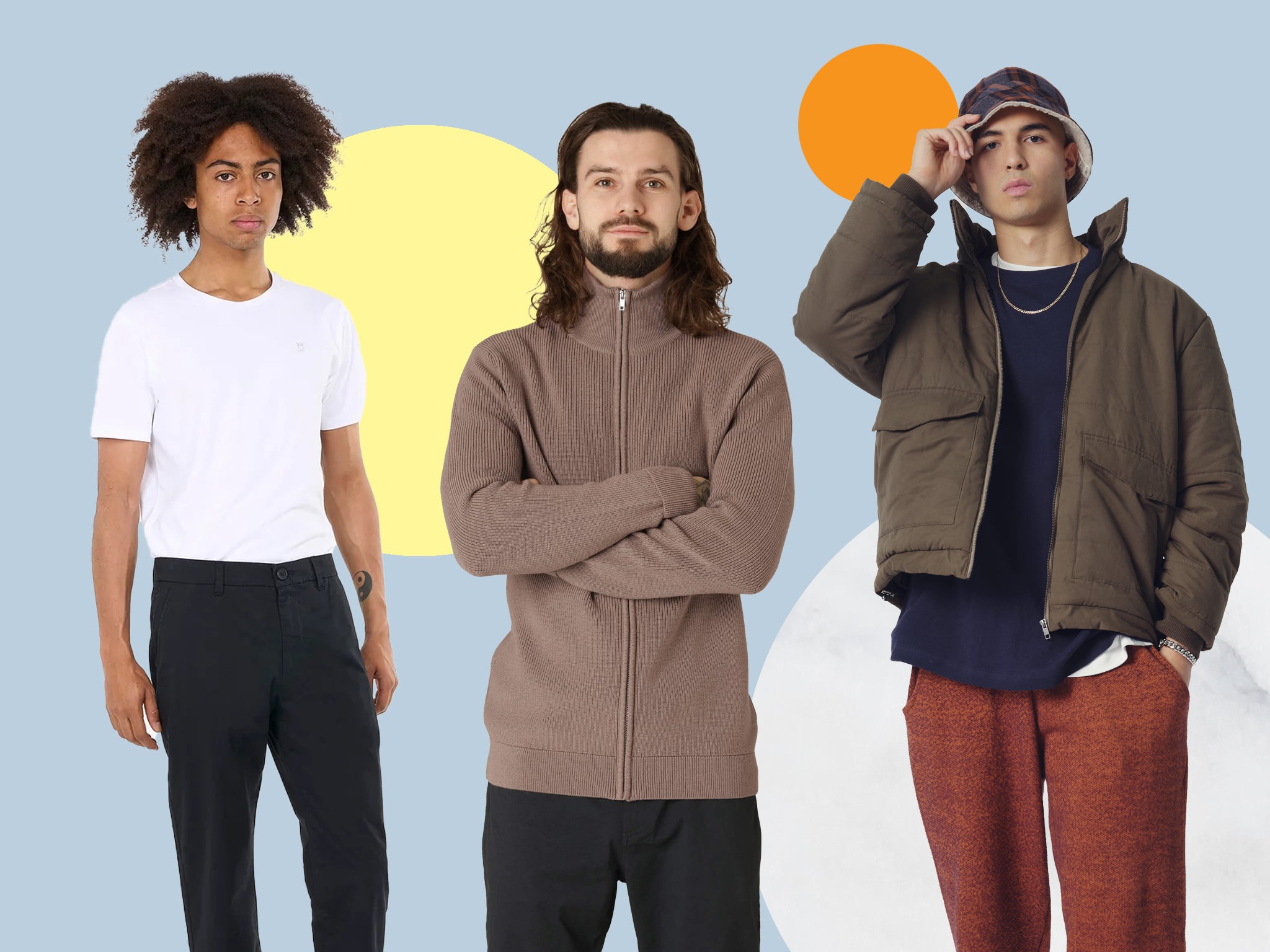
Your support helps us to tell the story
From reproductive rights to climate change to Big Tech, The Independent is on the ground when the story is developing. Whether it's investigating the financials of Elon Musk's pro-Trump PAC or producing our latest documentary, 'The A Word', which shines a light on the American women fighting for reproductive rights, we know how important it is to parse out the facts from the messaging.
At such a critical moment in US history, we need reporters on the ground. Your donation allows us to keep sending journalists to speak to both sides of the story.
The Independent is trusted by Americans across the entire political spectrum. And unlike many other quality news outlets, we choose not to lock Americans out of our reporting and analysis with paywalls. We believe quality journalism should be available to everyone, paid for by those who can afford it.
Your support makes all the difference.The clothes you wear say a lot about you. Of course, the look and feel are important. But, arguably, even more so is what the brand you’re wearing stands for. And a new report highlights that while fashion brands may talk the talk when it comes to ethics and sustainability, many do not walk the walk.
The 2022 Fashion Transparency Index, released in July by Fashion Revolution, reveals that the majority of major fashion brands – a staggering 96 per cent – do not disclose the number of workers in its supply chains that are being paid a living wage.
A more respectable 45 per cent are willing to publish targets on sustainable materials, but even then only 37 per cent discloses what actually constitutes a sustainable material. And a major elephant in the room is the sheer amount we consume, especially as 85 per cent of brands do not reveal their annual production volumes.
Few consumers are aware that this skyrocketing production and consumption of clothes is enabled by cheap synthetic fibres, mostly polyester (including recycled polyester, which arguably isn’t much better) which is found in over half of all textiles produced. If the fashion industry continues with business as usual it’s estimated that by 2030 almost three-quarters of our textiles will be produced from fossil fuels.
To say the clothing industry is in crisis is an understatement and now couldn’t be a more important time to use our consumer buying power. But if you’re unsure where to start, then we’re here to share the news that there are some really great ethical clothing brands for men out there, who strive to put sustainability and ethical production practices at their core.
Below are some of our favourite brands. All have completed a comprehensive questionnaire about their ethical standards from workers in the supply chain to sustainable materials, and each one proves that on-trend, stylish design doesn’t need to come at the cost of people, the earth, our oceans – or your wallet.
Brothers We Stand
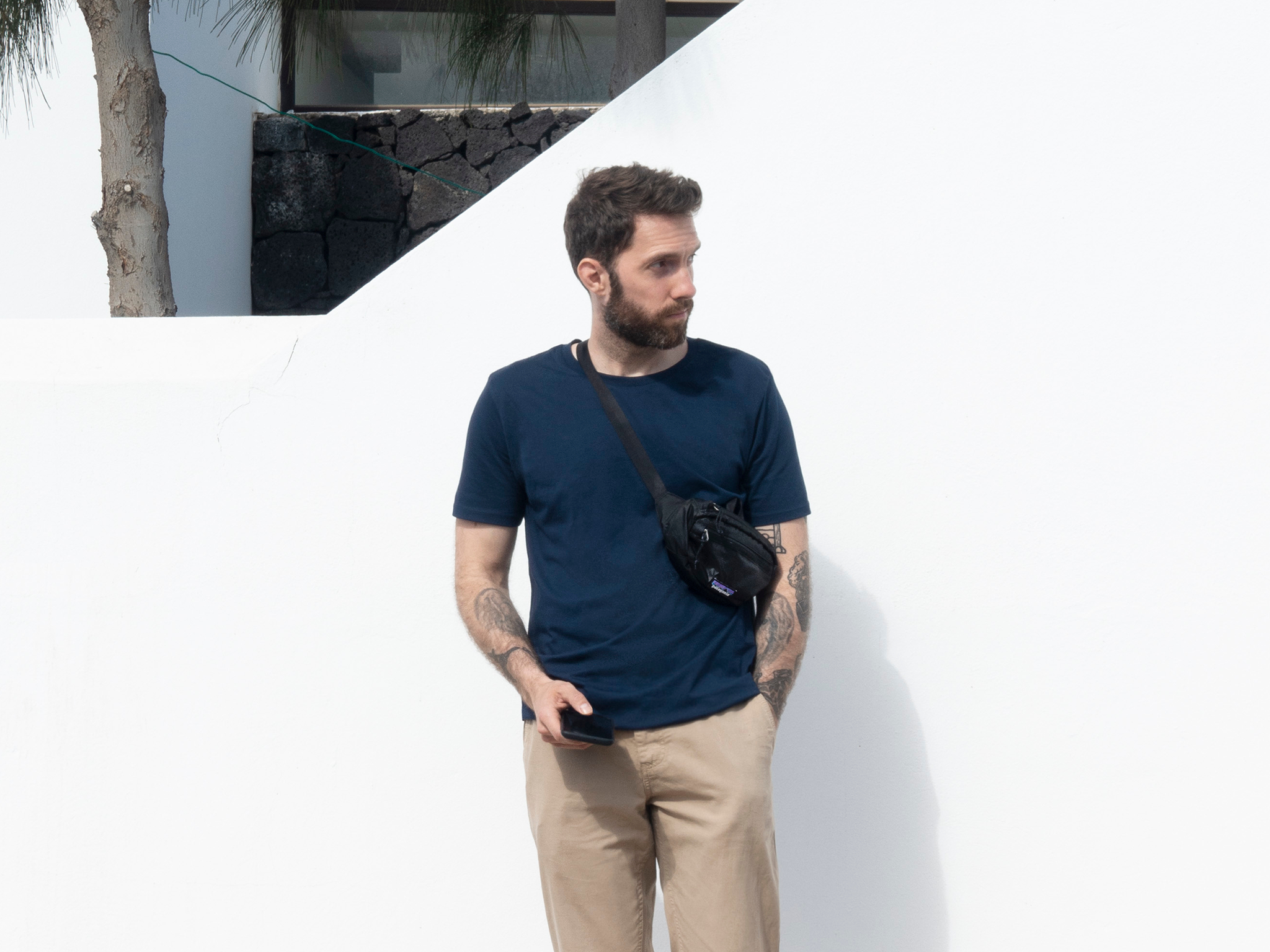
With its round-neck, well-fitting T-shirts, at £20 a pop, Brothers We Stand dispels the myth that high-quality ethical fashion has to be expensive. Its T-shirts are made in factories in Bangladesh that are independently audited by the Fair Wear Foundation and the Global Organic Textile Standard (GOTS).
Brilliantly, the Brothers We Stand online shop also curates ethical men’s clothing from brands with a focus on style that ranges from classic vintage-inspired workwear to more contemporary fits.
Neem London
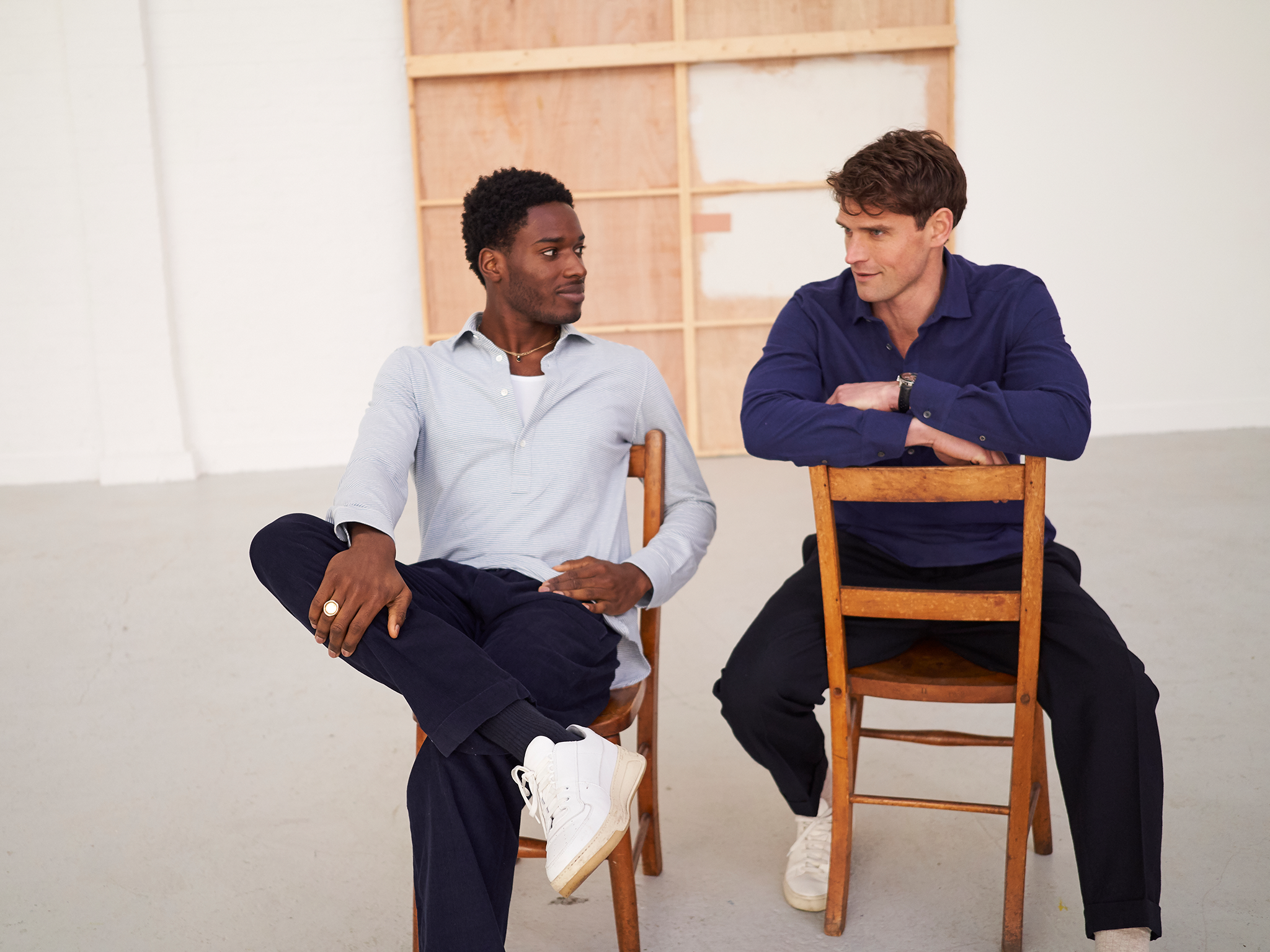
New menswear brand Neem London brings a smart-yet-dishevelled look to the market, with shirts and long-sleeved polos that will take you to the office – or to lunch. The brand’s focus on wardrobe staples aims to be an antiseptic for fast fashion. This “less is more” approach extends to the way it makes its collections – promising less water, less waste and fewer emissions are used to produce each garment that is also fully recyclable at the end of life.
Yarmouth Oilskins
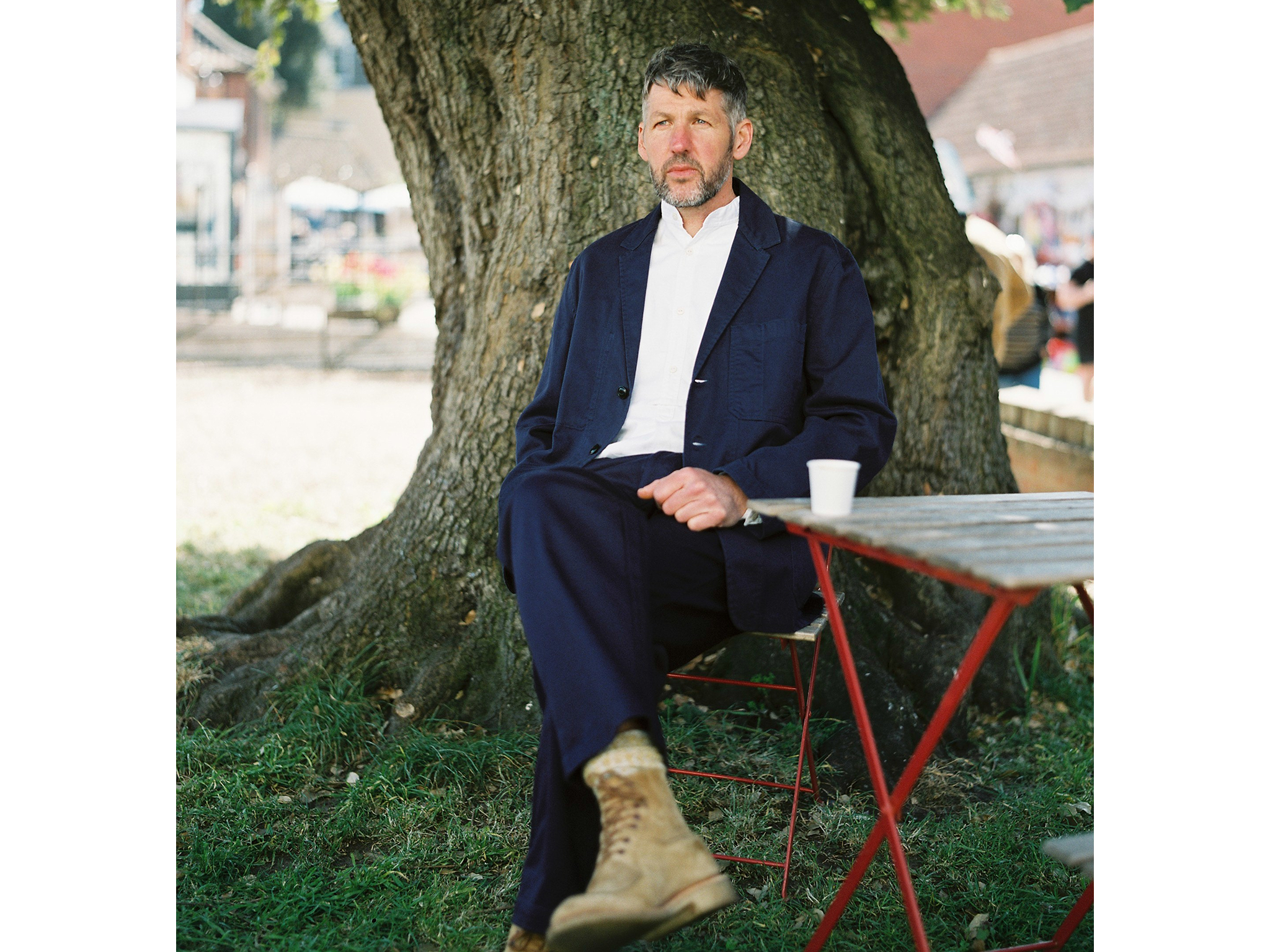
Yarmouth Oilskins’ focus is on layering and long-term work wear, and its style is as cool as it gets. The brand uses hardwearing natural fibres, is working on projects to utilise UK-native fibres and also offers limited runs using deadstock fabrics from large fashion houses. It has designed and manufactured quality workwear garments to the highest standards in Great Yarmouth, Great Britain for over 100 years.
Today, the brand strives to keep these skills, craft and garment manufacturing traditions alive in the UK, and to boost the economy of its town, which has some of the most socially deprived neighbourhoods in Britain.
Shop Yarmouth Oilskins at Brotherswestand.com now
Asket
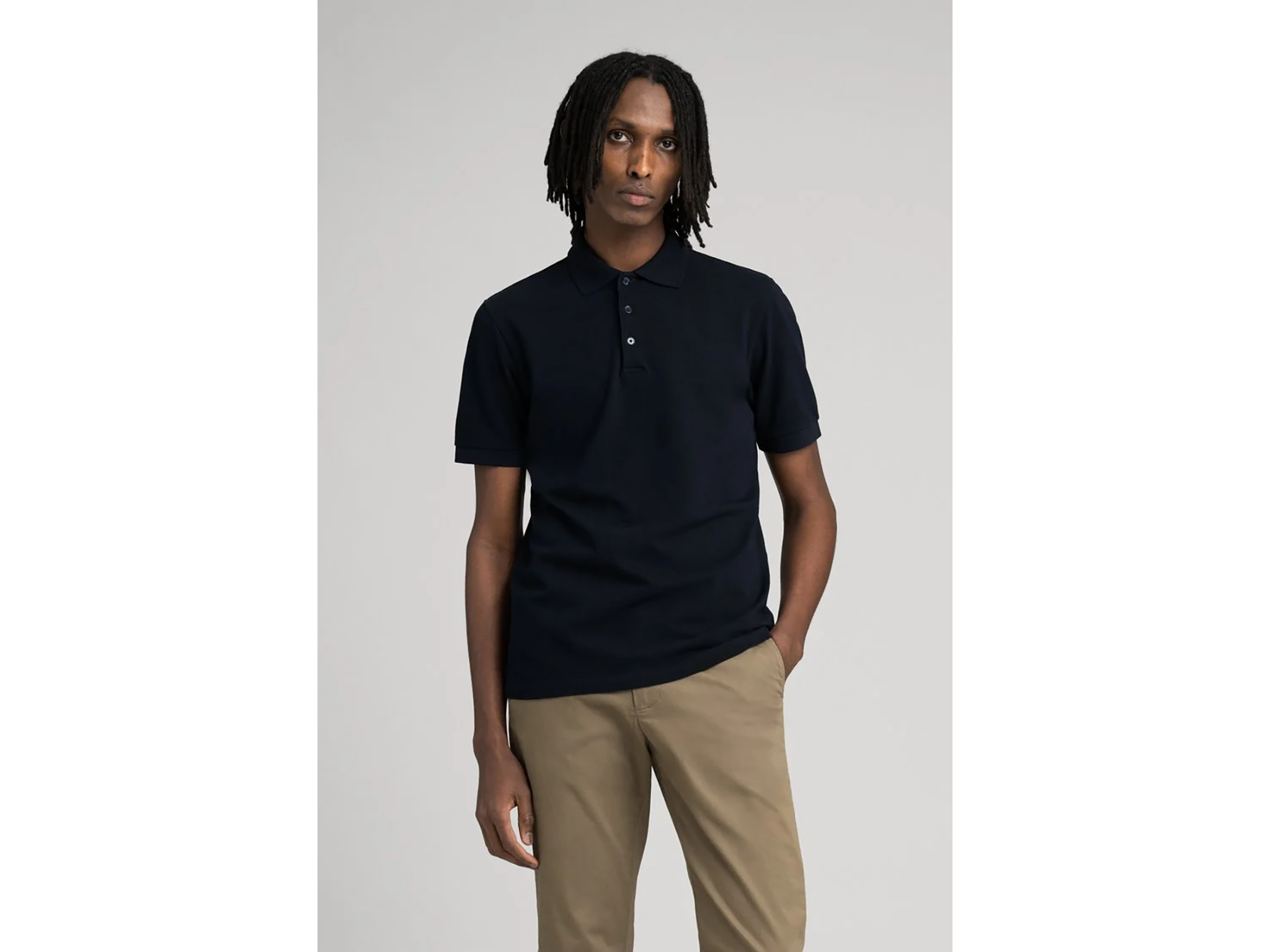
As a brand, Asket has banned the word “sustainable”, preferring to focus on responsibility and we admire that stance. Stylish in its simplicity, the company was created when its two founders identified a need to move away from fashion’s seasonal churn and instead introduce a permanent collection of timeless garments.
It is now one of the biggest brands on this list, with more than 400 processes and facilities involved in the production of its garments. Unlike most big brands Asket already publish details of 93 per cent of its supply chain (up 6 per cent from last year) – from raw materials to cut and sew factories. This showcases what can be done when a fashion brand really wants to achieve transparency.
Fleet London
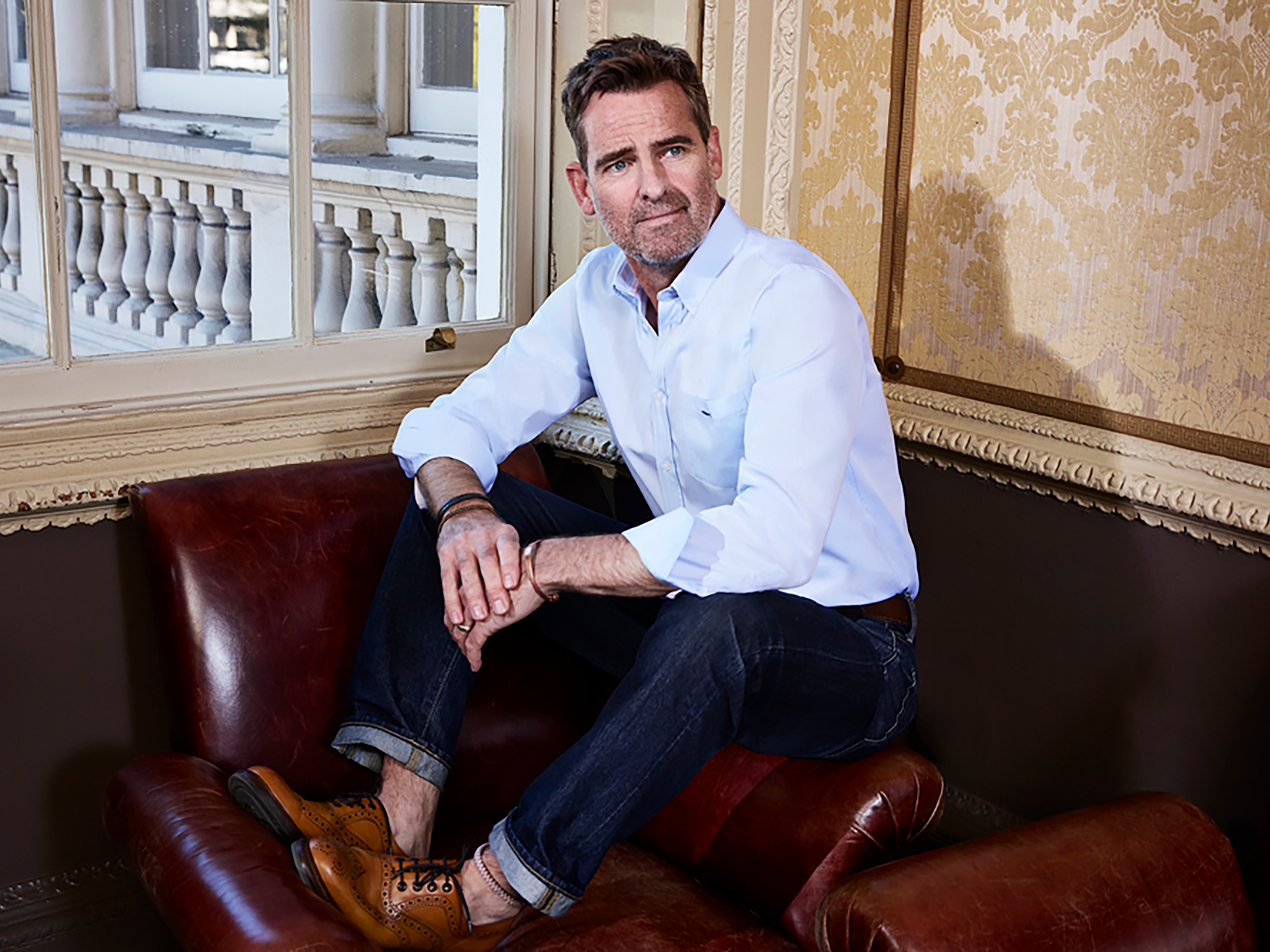
Good boxers and a good shirt are essential to many male wardrobes, and so this is where Soho-based Fleet London has focused its attention first. The brand promises high-quality sustainability, made from cotton from India and sewn in Portugal – in a factory that invests in its people and the environment with maternity and paternity leave, a creche for kids, solar panels, extensive tree planting and a programme to re-circulate used water.
Rapanui
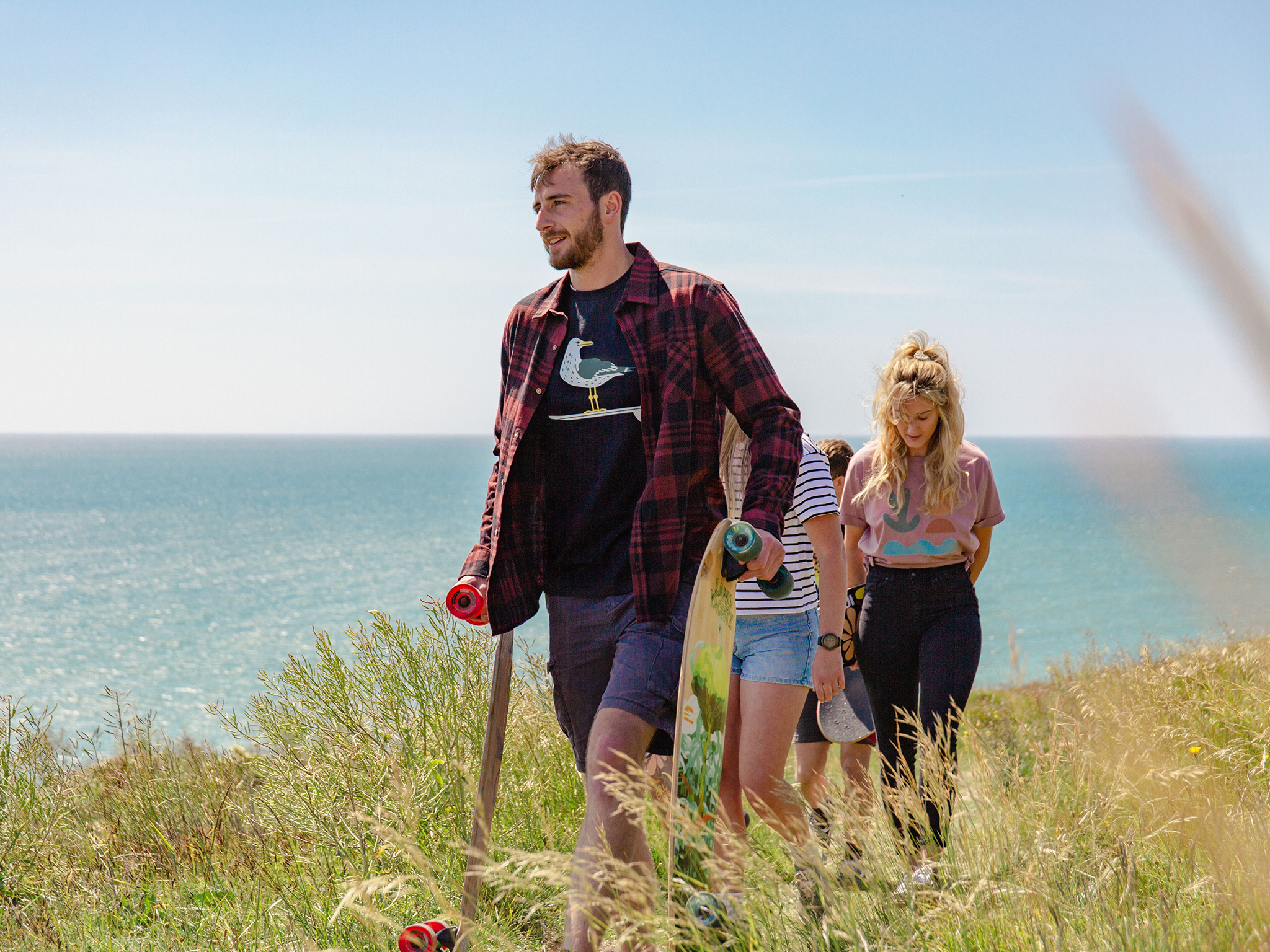
Rapanui is an all-round very cool brand for casual wear. Adventurer Sir Ranulph Fiennes wore one of its hoodies en route to the Antarctic and it also received the seal approval from Sir David Attenborough. But, that’s not the coolest thing about it – the best part is that all Rapanui products are made from natural materials, using renewable energy and produced in real-time so there’s no overproduction.
Plus, everything is designed to be sent back at its end of life and turned into new products. This innovative production is removing waste from the notoriously, well, wasteful fashion industry.
Superstainable
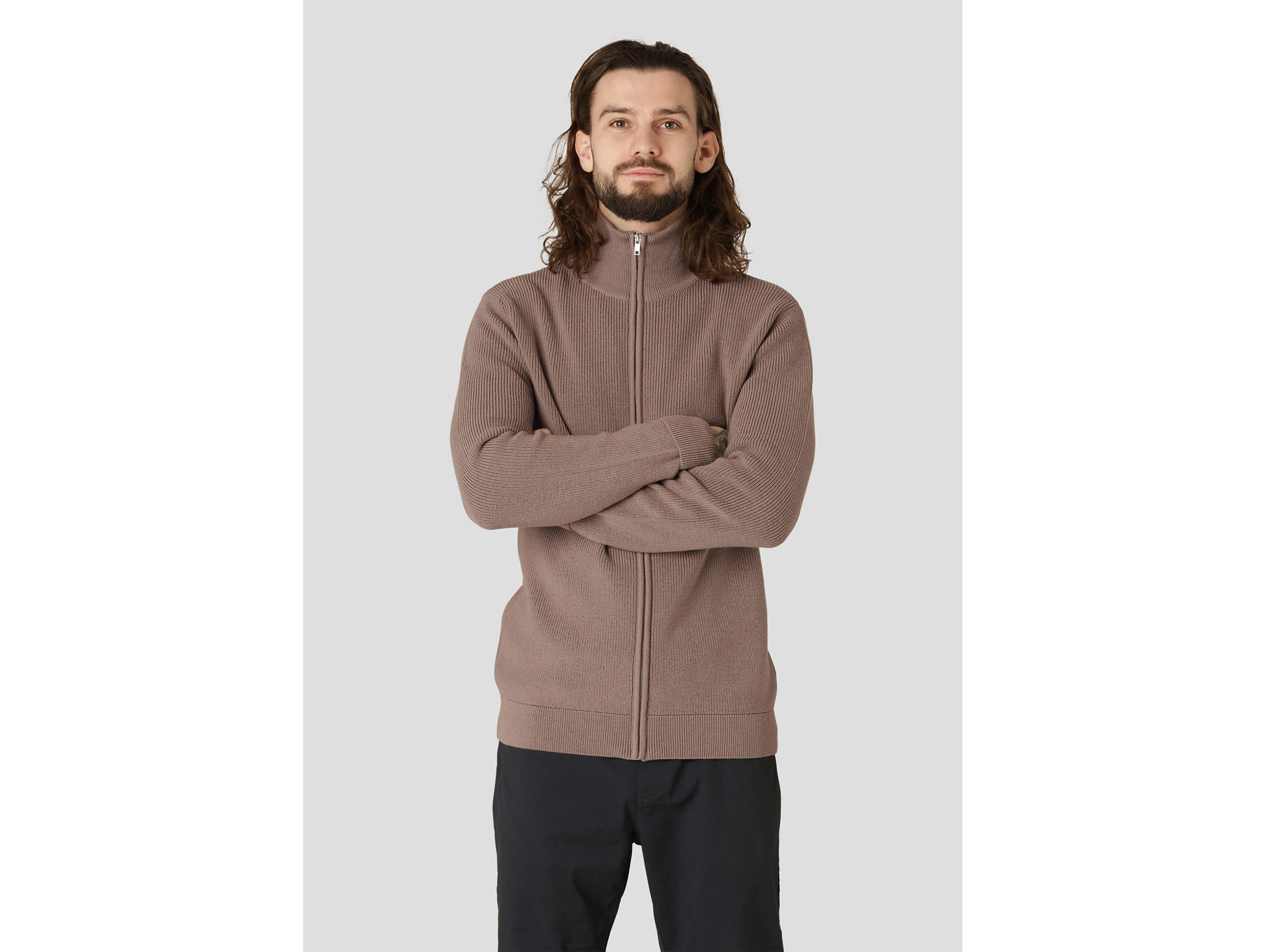
Superstainable is a Scandinavian outbrand brand whose knits will take you comfortably from the city to the countryside. The brand boasts that its supply chain is 100 per cent transparent and offers a “transparency map” on its website, allowing you to see where the materials are from and where the garments are cut and sewn – in Fair Wear Foundation-approved factories no less.
Raeburn
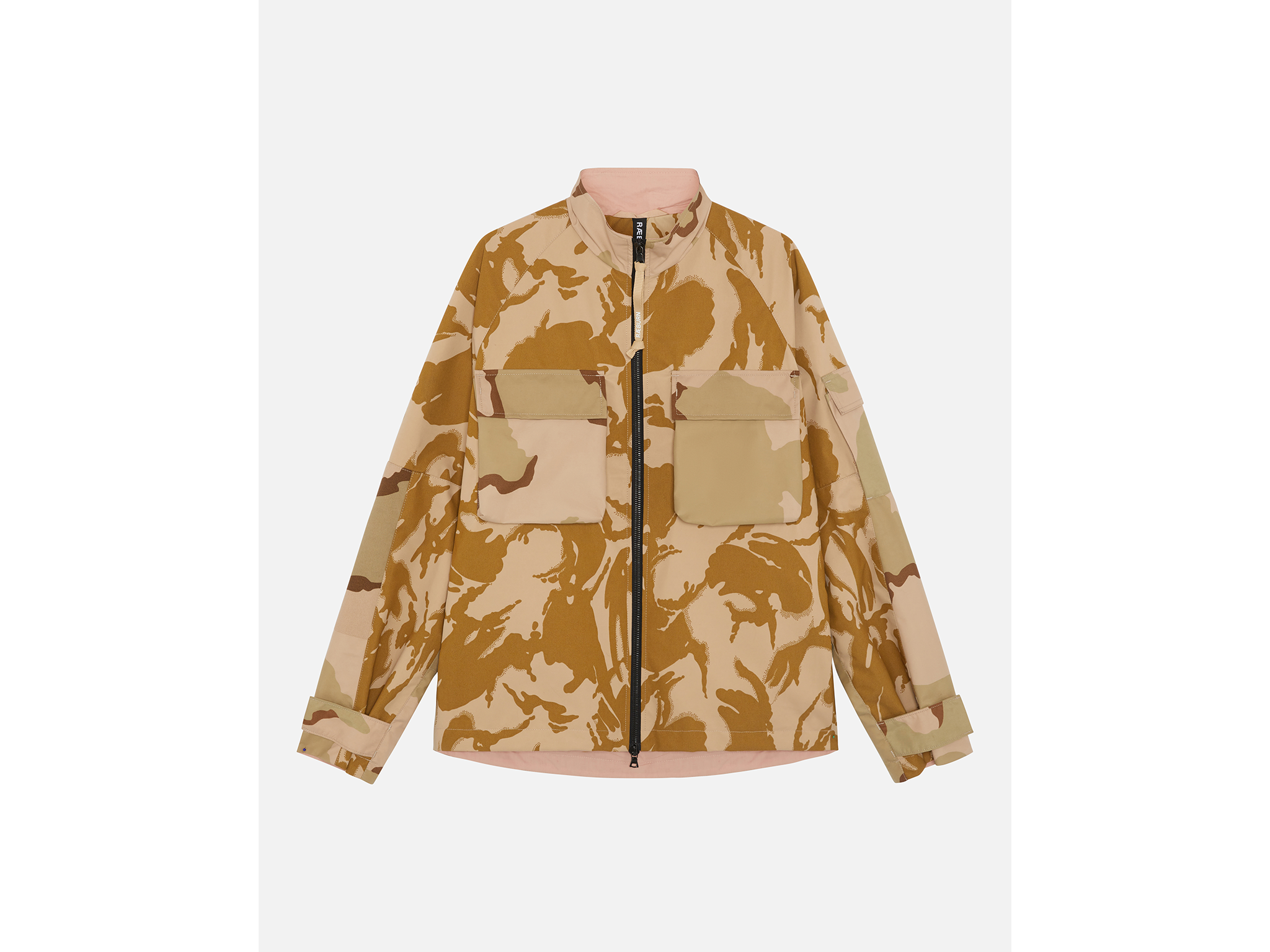
“Luxury with integrity” is the strapline of this award-winning British fashion label, which was established following Christopher Raeburn’s fascination with military materials and utilitarian clothing. Designed in East London, its in-house micro factory, the Raeburn Lab in Hackney, allows the brand to offer alterations and repairs as well as made-to-order.
With items made across the globe, Raeburn partners with factories that source certified recycled and organic raw materials and have a good understanding of responsible fashion. Admirably, the brand made a conscious effort to build factory rapport following the Covid-19 pandemic to show encouragement and support for ita partners; within the past 12 months Raeburn has visited its factories three to four times.
Locally, the brand’s work with local schools and youth charities aims to inspire and celebrate creativity, diversity and individuality.
Unhidden
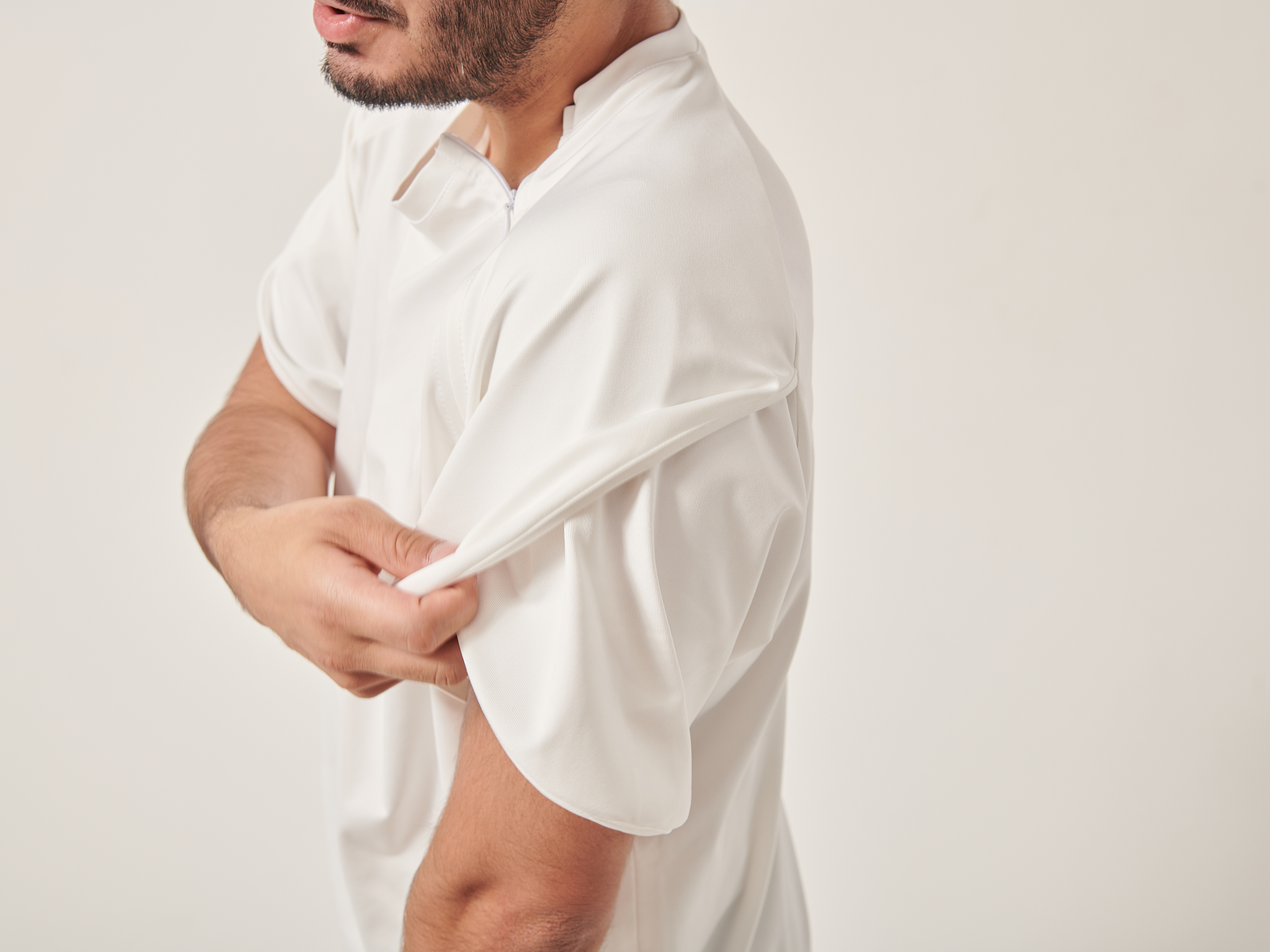
Adaptive fashion can mean comprising style for function, but Unhidden’s designs prove this doesn’t have to be the case. Unhidden shirts, for example, are designed to allow access to arm ports and have a choice of fastenings – magnetic, velcro or poppers. As such, they are particularly useful for chemo or radiotherapy patients, PICC line users, Hickman line users, people with cerebral palsy and people with dexterity issues.
Behind the scenes, the brand is determined to ensure sustainability doesn’t have to be compromised, either. More overtly, it works with organisations such as Models of Diversity to promote greater diversity in the fashion, beauty and media industries and make them more representative of the 15 per cent of the global population that live with disabilities (1 billion people).
Visit Unhiddenclothing.com now
Komodo
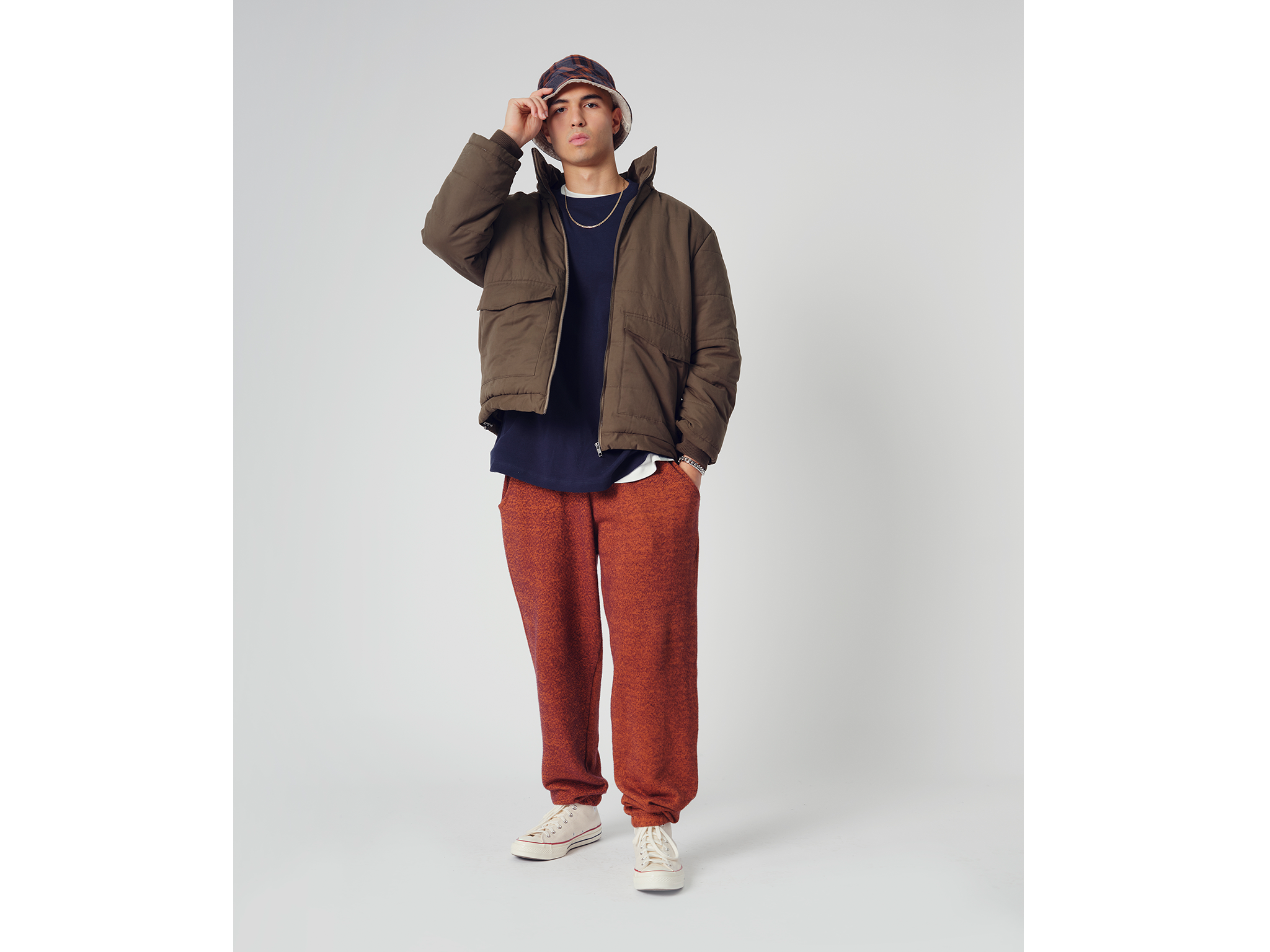
Where some of the brands in this list provide sustainable basics, Komodo aims to liven up your wardrobe; its roots lie in travel, early acid house and Nineties festival culture. The brand only started to use terms like “sustainable” and “eco” around 15 years ago when it began to see them in connection to fashion and realised this had been its default business model since the birth of the brand in 1988. As part of this commitment to sustainability, the garments have a long life span and the funky designs are mixed classic styling elements.
Hiut Denim

Founded more than 10 years ago, The Hiut Denim Company was set up to ensure the jean-making heritage of Cardigan – once home to Britain’s biggest jean factory – survived and the Welsh town could thrive. Hiut pays a living wage to all staff, its factory uses renewable energy, its processes use less water consumption, and each month it donates 1 per cent of profit towards a community project or company, which it calls “Town Tax”.
Hiut Denim jeans come with a lifetime repair guarantee. They also come with the offer of membership to the “No Wash Club”. Hiut insists the longer you leave your jeans before washing them (it recommends six months) the better they will look, because the indigo will wear off in places you make natural creases and when it comes to wash day, that will reveal some beautiful contrasts.
Brava Fabrics
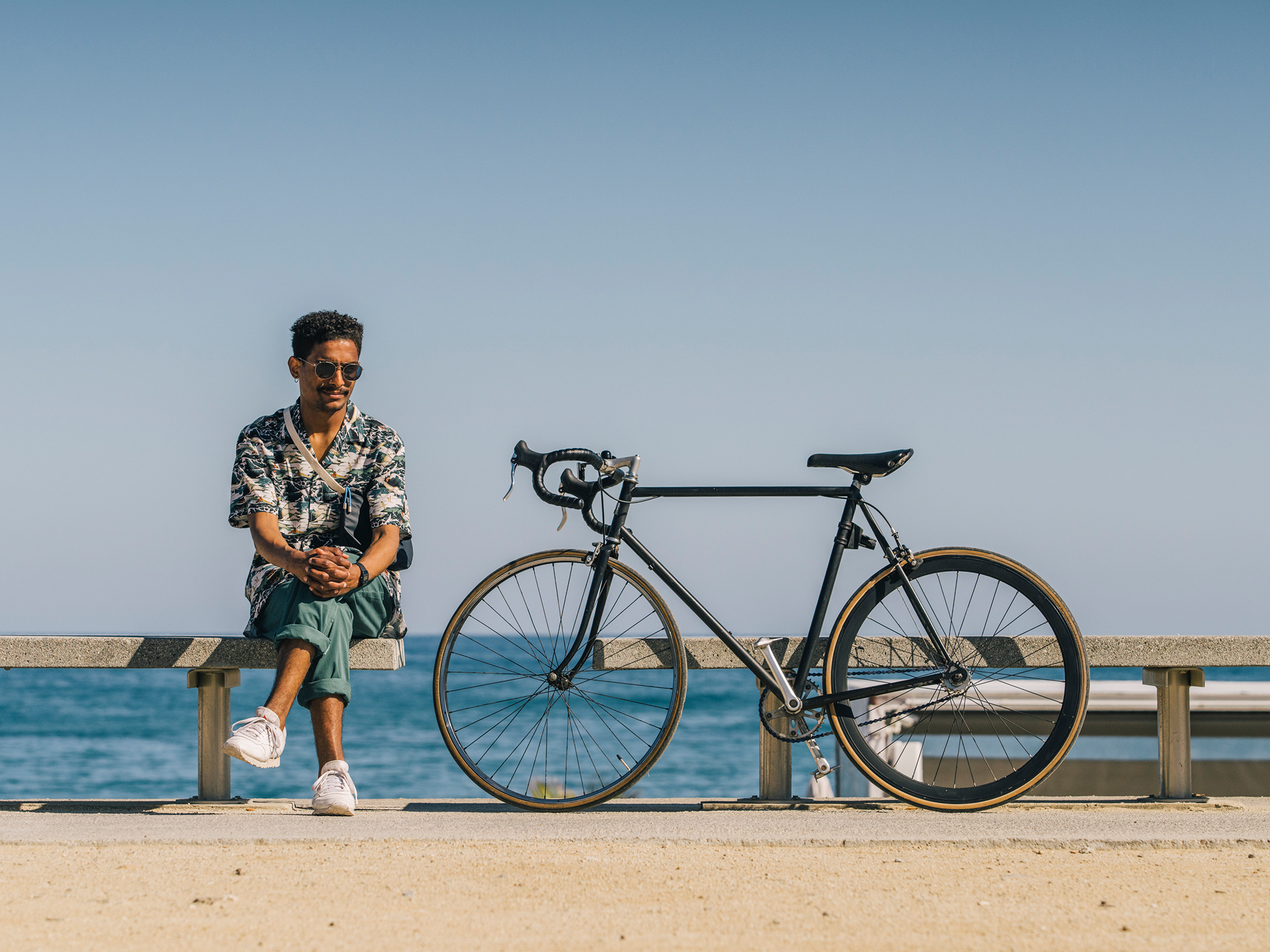
If you’re looking to style your outfit around chinos, then Brava Fabrics is one to check out. Brava Fabrics offers classic pieces with designs influenced by some of the best things in life – travel, music, art and culture. All items are made using sustainable materials in factories in Portugal and Spain, with which the brand has built long-standing relationships.
Absolutely Bear
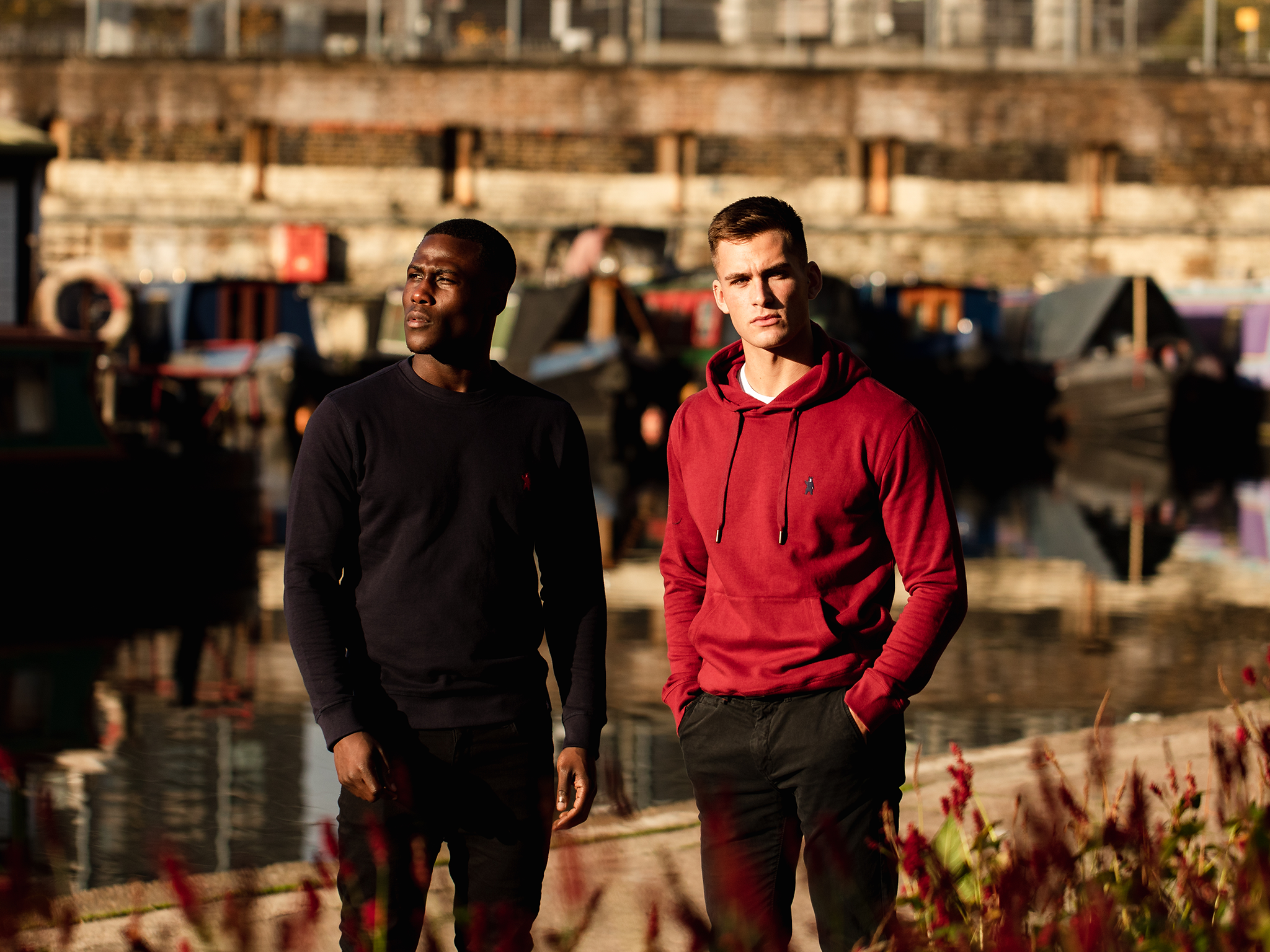
Polo, hoodies, jumpers – Absolutely Bear has the essentials covered for urbanites. The brand is relatively new and its clothes are made in a Fair Wear Foundation-certified factory, meaning the garment workers are paid a living wage. It is also part of the 1% for the Planet movement, meaning it has committed to giving 1 per cent of gross annual sales to certified non-profit organisations.
Valentina Karellas
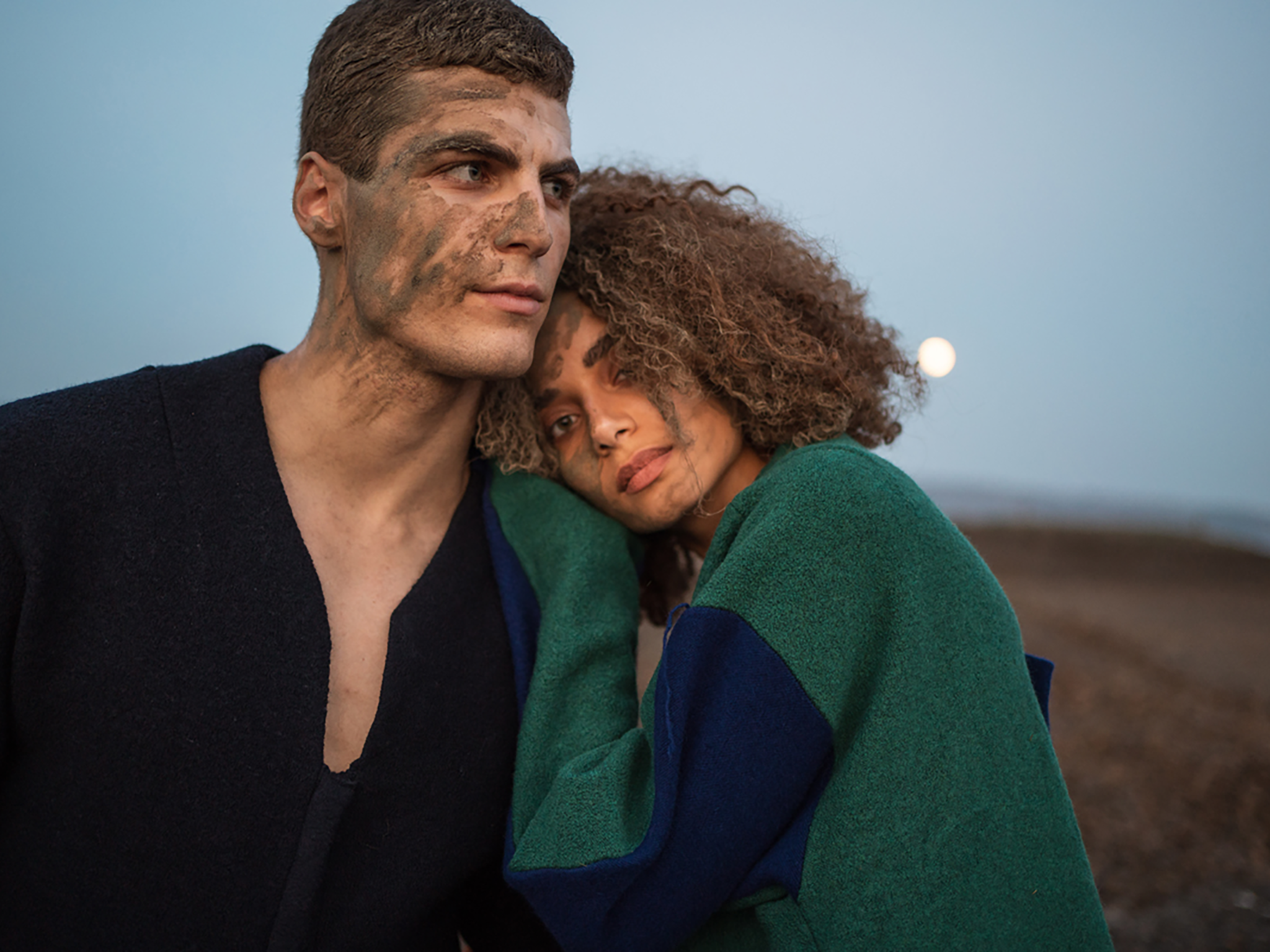
Designer Valentina Karellas creates high-quality, bold, statement knitwear from surplus yarn, so each design is a unique combination of threads. She handknits everything from her London studio to order, so each piece is made especially for you. We love that Valentina Karellas keeps the loose strands of yarn on her designs to highlight the brand’s zero-waste ethos and the rawness of her knits.
Visit Valentinakarellas.com now
KnowledgeCotton Apparel
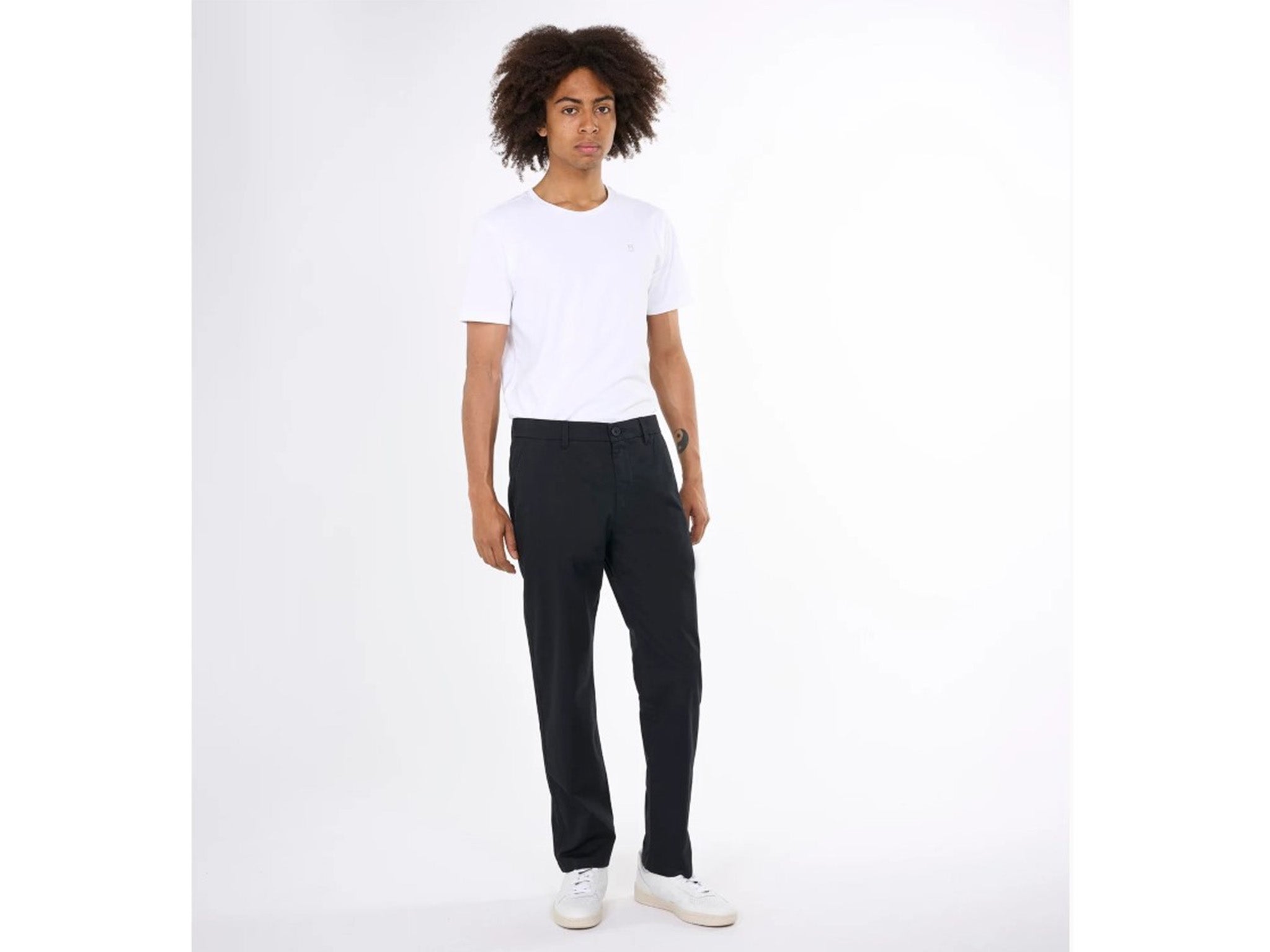
KnowledgeCotton Apparel was founded in 2008 by a father-and-son team, together with a dedicated group of friends and family who wanted to challenge the textile industry. The brand describes itself as an “urban outdoor brand”, which means you’ll find it has the wardrobe essentials of chinos, T-shirts, shirts and hoodies covered – but an interesting cut here and bright colour there injects these staples with style. KnowledgeCotton Apparel is also available at Brotherswestand.com.
Shop Knowledge Cotton Apparel at Brotherswestand.com now
For more men’s fashion staples, check out our round-up of the best hoodies that are perfect for everyday wear

